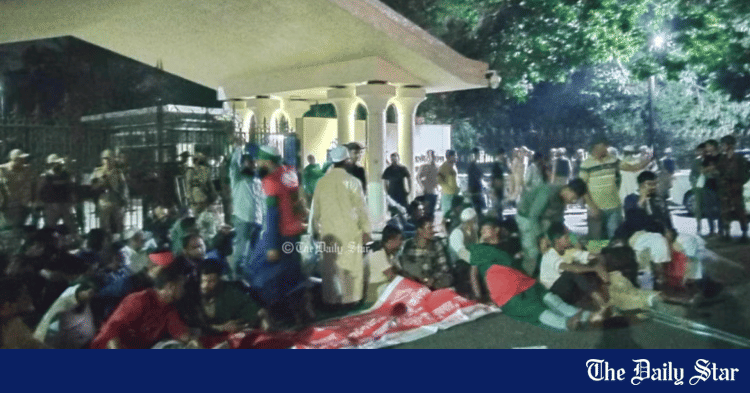Saif
Senior Member
- Joined
- Jan 24, 2024
- Messages
- 17,281
- Likes
- 8,334
- Nation

- Residence

- Axis Group


Injured activists in anti-discrimination student movement to get monthly allowances
Those who were injured in the July-August movement will be divided into three categories and given government benefits. In the first category, the seriously injured will be given a one-time allowance of Tk 500,000 and an allowance of Tk 20,000 per month. In the second category, those who have suf
Injured activists in anti-discrimination student movement to get monthly allowances
FE ONLINE DESK
Published :
Feb 17, 2025 22:31
Updated :
Feb 17, 2025 22:31

Those who were injured in the July-August movement will be divided into three categories and given government benefits.
In the first category, the seriously injured will be given a one-time allowance of Tk 500,000 and an allowance of Tk 20,000 per month.
In the second category, those who have suffered from a limb loss will be given a one-time allowance of Tk 300,000 and Tk 15,000 per month.
And in the third category, those who have received treatment for minor injuries, have recovered – they will get priority in jobs and rehabilitation on a priority basis. They will not get allowances.
Liberation War Affairs Ministry Adviser Faruq-e-Azam announced the government's decision to provide facilities to the injured people on Monday, according to local media.
He said this while talking to reporters after a working session on the second day of the three-day Deputy Commissioner (DC) conference.
The government had earlier said it would give Tk 3.0 million to each family of the movement martyrs.
The Liberation War Affairs Adviser said how the money would be paid. He said that each martyr's family will be given savings certificates of Tk 1.0 million in the current 2024-25 fiscal year.
The remaining savings certificates of Tk 2.0 million will be given by July of the next financial year 2025-26. He said that this Tk 3.0 million is only for the martyr's family.
Adviser Farooq-e-Azam said that those who were martyred in the July movement will be known as 'July Shahid'.
In this regard, they will get certificates, identity cards. Those wounded in the July coup will be called July Warriors. They will get identity cards and government benefits. They will get this benefit for life. You will also get an allowance.
FE ONLINE DESK
Published :
Feb 17, 2025 22:31
Updated :
Feb 17, 2025 22:31
Those who were injured in the July-August movement will be divided into three categories and given government benefits.
In the first category, the seriously injured will be given a one-time allowance of Tk 500,000 and an allowance of Tk 20,000 per month.
In the second category, those who have suffered from a limb loss will be given a one-time allowance of Tk 300,000 and Tk 15,000 per month.
And in the third category, those who have received treatment for minor injuries, have recovered – they will get priority in jobs and rehabilitation on a priority basis. They will not get allowances.
Liberation War Affairs Ministry Adviser Faruq-e-Azam announced the government's decision to provide facilities to the injured people on Monday, according to local media.
He said this while talking to reporters after a working session on the second day of the three-day Deputy Commissioner (DC) conference.
The government had earlier said it would give Tk 3.0 million to each family of the movement martyrs.
The Liberation War Affairs Adviser said how the money would be paid. He said that each martyr's family will be given savings certificates of Tk 1.0 million in the current 2024-25 fiscal year.
The remaining savings certificates of Tk 2.0 million will be given by July of the next financial year 2025-26. He said that this Tk 3.0 million is only for the martyr's family.
Adviser Farooq-e-Azam said that those who were martyred in the July movement will be known as 'July Shahid'.
In this regard, they will get certificates, identity cards. Those wounded in the July coup will be called July Warriors. They will get identity cards and government benefits. They will get this benefit for life. You will also get an allowance.









































